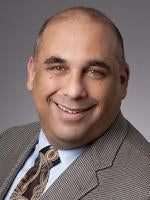In its June 2021 physician supply and demand report, “The Complexities of Physician Supply and Demand: Projections From 2019 to 2034” (the “Report”), the Association of American Medical Colleges (“AAMC”) highlights the ongoing concern of physician shortages in the United States. According to the Report, the U.S. faces a potential physician shortage of between 37,800 to 124,000 doctors by 2034. While an improvement from AAMC’s June 2020 report, the COVID-19 pandemic highlighted the consequences of failing to address this problem, as medical schools and teaching hospitals were forced to graduate medical students early, and hospitals scrambled to call up retired physicians and to pay steep travel and relocation rates, all to address the public health emergency.
Considering the Report’s conclusion that more than two of five currently active physicians will be 65 or older within the next decade, physician supply is expected to continue to decline, driven by retirements in the near future. Meanwhile, physician demand is expected to increase, continuing to outpace supply, due to both an aging population and expected population growth.
Without action, access to care and patient outcomes may deteriorate. Two bills recently introduced in the Senate aim to address the nation’s shortage of physicians: the Conrad State 30 and Physician Reauthorization Act (H.R.3541/S.1810) and the Resident Physician Shortage Reduction Act of 2021 (S.834).
Conrad State 30 and Physician Reauthorization Act
On May 25, 2021, a bipartisan coalition in the Senate introduced the Conrad State 30 and Physician Reauthorization Act (H.R.3541/S.1810) (“S.1810”), which would reauthorize the Conrad 30 waiver program for three years. Many foreign national physicians come to the U.S. for graduate medical education or training under J-1 visas. Typically, these J-1 visa physicians are required to return to their home country after completing residency in the U.S.. Under the Conrad 30 waiver program, states are granted waivers to allocate to J-1 visa physicians, allowing these physicians to stay in the U.S. after their residency, on the condition that they serve medically underserved communities for three years. So far, the program has brought 15,000 physicians to medically underserved communities in the U.S.. In addition to reauthorizing the program, S.1810 would increase the number of waivers per state, allowing J-1 visa physicians in the Conrad 30 waiver program to pursue a green card (also known as “dual intent”), and establishing new employment protections.
S.1810 was introduced by Sens. Amy Klobuchar (D-Minn.), Susan Collins (R-Maine), Jacky Rosen (D-Nev.), and Joni Ernst (R-Iowa) in the Senate, and Rep. Brad Schneider (D-Ill) introduced the bill as H.R.3541 in the House.
Sen. Klobuchar emphasized that the program is “filling a critical need for quality care in our rural communities,” and noted that this “bipartisan legislation would allow doctors to remain in the areas they serve, improving health care for families across the nation while retaining talent trained and educated here in the United States.” Sen. Collins echoed these sentiments, stating, “we must provide opportunities for American-trained and educated physicians to remain in the country and practice in areas where there is an unmet need for quality care,” and that this bill would “promote healthier lives and ensure that families across the country receive the health care they deserve.”
In addition to receiving bipartisan support, S.1810 is endorsed by both AAMC and the American Hospital Association (“AHA”). In AHA’s endorsement of the legislation, AHA Executive Vice President Stacey Hughes expressed that, “[w]ithout timely reauthorization, patient access to care in the many communities that have benefited from these physicians may be threatened.”
S.1810 also received a letter of support from the Society of Hospital Medicine (“SHM”), which noted that “[h]ospitals in rural and underserved areas often struggle with attracting and retaining physicians and the Conrad 30 program helps address this imbalance.”
The Resident Physician Shortage Reduction Act of 2021
On March 18, 2021, Sens. Bob Menendez (D-N.J.), John Boozman (R-Ark.), and Democratic Leader Sen. Chuck Schumer (D-N.Y.) introduced the Resident Physician Shortage Reduction Act of 2021 (“S.834”). According to its sponsors, the legislation, if passed, would ensure an adequate supply of well-trained physicians by expanding the number of Medicare-supported medical residency positions by 2,000 annually for seven years.
Currently, there is a cap on Medicare support of graduate medical education (“GME”) that effectively prohibits teaching hospitals from receiving Medicare support for any new medical residency positions. Although Congress increased the number of Medicare-supported GME positions by 1,000 in the Consolidated Appropriations Act of 2021, S.834 would increase medical resident training positions by 14,000 over seven years.
“Since day one, hundreds of thousands of physicians from across the country have been on the front lines of the fight against the most serious public health crisis in our lifetimes – and our nation has desperately needed every single one of them,” said Sen. Menendez in a statement on the bill. Sen. Menendez emphasized that “we were already facing a physician shortage crisis before the pandemic hit”, and that we will not be prepared to respond to a future public health crisis – let alone the health needs of an aging population – if we don’t act now to significantly increase the number of medical school students and physician residents in the training pipeline.” He argues that “[l]ifting this arbitrary cap would make a big difference in providing access [to] quality health care in every community.”
In a letter of support for S.834, AHA wrote, “We believe this approach responsibly addresses the nation’s urgent need for additional physicians.” The letter highlights the legislation’s focus on “hospitals with diverse needs, including hospitals in rural areas, hospitals serving patients from health professional shortage areas, hospitals in states with new medical schools or branch campuses, and hospitals already training over their caps.”
While endorsing S.834, AAMC president and CEO David J. Skorton also called for “increased emphasis on diversifying the health care workforce [and] the expansion of health care workforce programs” as part of a multipronged approach to combatting the physician shortage.
We will continue to monitor and report on the progress of S.1810 and S.1834. Stay tuned!
Jarrod Brodsky , a Healthcare Intern at Sheppard Mullin, contributed to this article.



 />i
/>i
